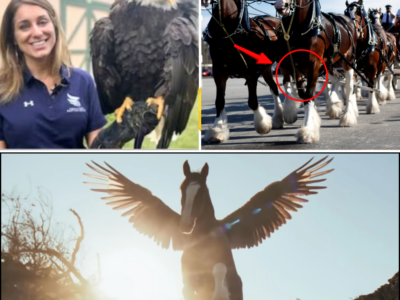
Under a canopy of crisp Alabama autumn sky, the football field at Michael Dixon Memorial Stadium in Cleveland transformed into a sea of pink on the evening of October 20, 2025. It wasn’t game day—no roaring crowds or thundering tackles—but a vigil of quiet defiance and unbreakable spirit. Hundreds from Blount County streamed in, clutching candles and clutching hope, to honor Kimber Mills, the 18-year-old Cleveland High School senior whose laughter had lit up cheer practices and track meets. Just 48 hours earlier, that light had been snuffed out in a hail of gunfire at a bonfire party in nearby Pinson. As the community bowed heads in prayer, the air hummed with a collective ache: for Kimber, gone too soon; for the survivors, scarred but standing; and for a world that feels a little less safe after one senseless night.
Kimber Mills wasn’t just a name on a roster; she was the heartbeat of her tight-knit world. The youngest of four siblings, with a fiery spirit that matched her favorite color—pink—she captained the cheer squad with a grin that could rally a losing team and sprinted the track like she was chasing dreams. “She had this spunk, this spark,” her sister Ashley Mills shared through tears at the vigil, her voice steadying as the crowd leaned in. “Kimber wanted to be a nurse—help people, heal hurts. Even in her last act, she did that.” Bound for the University of Alabama in the fall of 2026, Kimber embodied the unyielding optimism of small-town youth: family barbecues in Oneonta, late-night study sessions, and bonfires where worries burned away like driftwood.
But Saturday, October 18, twisted that idyll into nightmare. Around midnight, in a wooded clearing off Highway 75 North known as “The Pit”—a notorious spot for teen gatherings in eastern Jefferson County—over 100 kids had converged for what promised to be a harmless escape. Bonfire flames danced high, music pulsed from truck speakers, and the air smelled of smoke and freedom. Kimber arrived with friends and her sister, ready to unwind after a grueling week of school and sports. “It was supposed to be fun,” Ashley recounted to reporters the next day, her words hollow. “Just kids being kids.”
Then, chaos cracked the night open. Steven Tyler Whitehead, a 27-year-old from Tuscaloosa County with a history of run-ins with the law, rolled up uninvited. What started as a verbal spat—Whitehead hassling one of Kimber’s friends—escalated when he grabbed for his waistband. Punches flew; bodies hit the dirt. Kimber, ever the peacemaker, stepped in to break it up. “She was trying to help,” Ashley said. “That’s who she was.” While Whitehead was pinned, he wrenched free a handgun and unleashed hell: 11 shots in rapid fury, striking Kimber in the head and leg, and wounding three others—21-year-old Silas McCay, a Locust Fork High grad and local hero; 18-year-old Levi Sanders; and another teen whose injuries remained private. Two more rounds fired skyward as a final threat, scattering the terrified crowd into the underbrush.
Sirens wailed into the remote woods around 12:24 a.m., but the damage was done. Kimber was airlifted to UAB Hospital in Birmingham, her vitals crashing as medics fought the impossible. The others, battered but breathing, were rushed to the ER with non-life-threatening wounds—shattered bones, grazed flesh, echoes of trauma that no bandage could bind. Whitehead fled to Tuscaloosa, only to surrender 11 hours later, initially slapped with three counts of attempted murder. Cellphone videos, shaky and stomach-churning, captured the horror: flashes of muzzle fire, screams piercing the dark, a pink-clad figure crumpling to the leaves.
By Monday, as Blount County reeled, the vigil at the stadium became a beacon. Pink—Kimber’s color—dominated: balloons tied to goalposts, T-shirts emblazoned with “Pray for Kimber #23” (her cheer number), even the field’s lights dimmed to a rosy glow. Families trickled in from Oneonta, Cleveland, and beyond, filling the bleachers shoulder-to-shoulder. Pastor Elijah Grant of Cleveland First Baptist opened with a prayer that hung heavy: “Lord, we lift up the Mills family to you, Kimber to you. In this valley of shadows, be our light.” Voices joined in a ragged chorus of “Amazing Grace,” tears carving paths down cheeks dusted with glitter from lost pom-poms.
Ashley stood at the podium, flanked by her parents—stoic dad Mike gripping a worn Bible, mom Lisa clutching a photo of Kimber mid-cartwheel. “Kimber fought like the warrior she was,” Ashley said, her voice breaking the hush. “Doctors said no surgery could give her a life worth living. But her heart? It’s beating in someone else now—a little girl, just seven years old. That’s Kimber: giving, even when it hurts most.” The crowd erupted in applause, a thunder of gratitude mixed with grief. GoFundMes surged online, topping $200,000 combined for the Mills family and survivors’ medical bills. “Silas is doing well but needs another surgery,” read one plea for McCay, the affable 21-year-old who’d planned a career in welding. “Levi’s strong, but the road’s long—pray for his healing.”
Tuesday brought the unthinkable full circle: Kimber’s “Honor Walk” at UAB, a solemn procession reserved for organ donors. Hundreds lined the hospital corridors, pink ribbons fluttering like flags of farewell. Hospital staff wheeled her bed slowly through the gauntlet—family at the front, friends trailing with clasped hands—as a bagpiper’s lament swelled. “So that others may live,” the family inscribed on her donor registry, a final flourish of selflessness. Her heart went to that young girl; her kidneys, liver, and more to strangers whose names they’d never know. Whitehead’s charges upgraded to murder that same day, his bond hearing a grim formality where prosecutors replayed the videos, the courtroom silent save for gasps.
Blount County’s response? A tapestry of resilience. Pink bows sprouted on porches and storefronts, proceeds funneled to the families. Cleveland High canceled classes, grief counselors flooding the halls where Kimber’s locker stood adorned with notes: “You inspired us all.” The Cleveland Panthers football team dedicated their next game to her, helmets stenciled with her number. Even strangers stepped up—Michael Holmes, a partygoer who’d witnessed the shots, shared his story at the vigil: “I’m glad she fought. We all prayed. Now, we honor her by living louder.”
As the stadium lights faded that Monday night, Reverend Grant closed with a charge: “Kimber’s gone, but her light scatters darkness. Pray for the survivors, yes—but act. Hug your kids tighter. Check on your neighbors. In a world quick to pull triggers, let’s pull each other through.” The crowd dispersed into the chill, candles flickering like stars refusing to dim. For Silas and Levi, recovery beckons—one surgery, one step at a time. For the Millses, a home forever quieter, yet richer in legacy. And for Blount County, a vow etched in pink: Kimber’s story isn’t tragedy’s end—it’s a call to compassion’s dawn.
In the shadow of senseless loss, this gathering wasn’t just mourning; it was mending. A community, fractured by gunfire, fused by faith and the fierce love of a girl who gave everything—twice over. Rest easy, Kimber Mills. Your spunk lives on, in hearts you mended and lives you saved.

